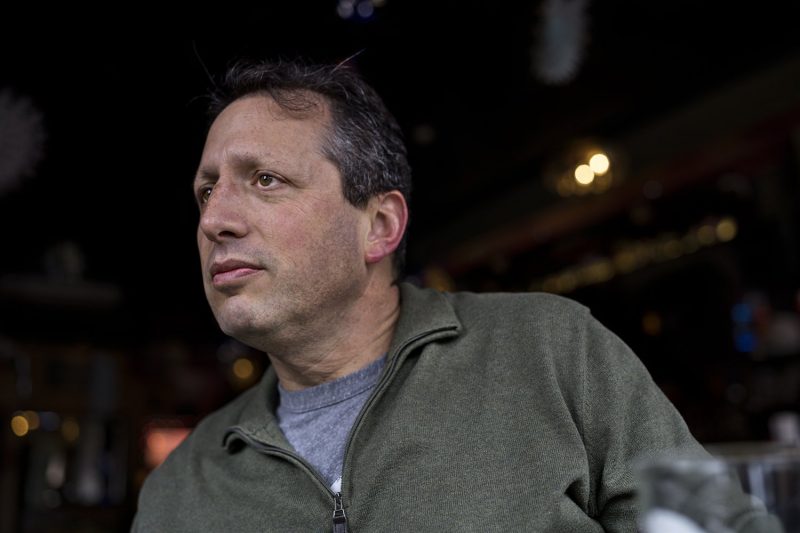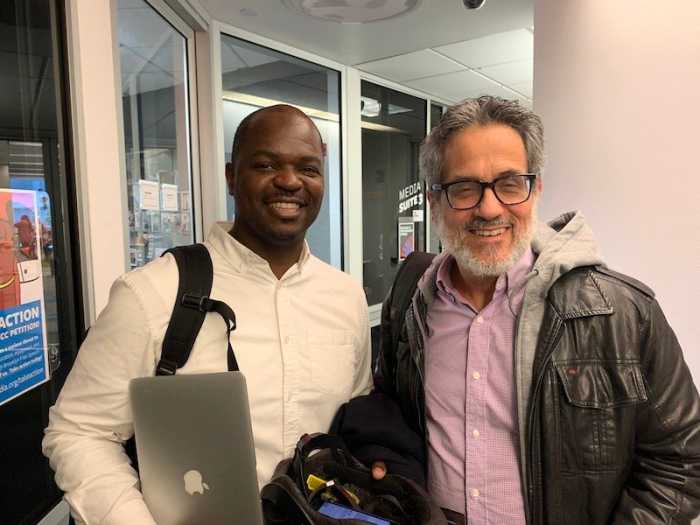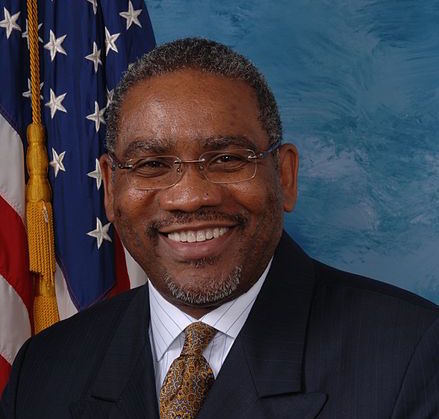Waiting for City Council Member Brad Lander (D-Park Slope, Windsor Terrace, Kensington) to show up at the Commonwealth Bar on 5th Avenue and 12th Street last Sunday afternoon, I pondered whether this was a ruse for Lander to get on my drinking journalistic good side.
When I proposed the interview to the lawmaker, who all but puts the capital “P” in progressive, I suggested we meet for either a coffee or a beer. Had I been a betting man, I would have pegged Lander for being a latte or green tea guy, perhaps with a bagel, particularly for an early Sunday afternoon meet up. But much to my surprise, he chose a dive bar alternative. Go figure.
So as I drank a Six Point lager and wolfed down the free popcorn at the near empty bar, I wondered what all this meant. Meanwhile, four sweaty patrons lugging yoga mats and wearing spandex came in for some post yoga beers, which only goes to show you can place a dive bar in Park Slope, but you can never eighty-six the Park Sloper out of it.
In any event, Lander finally sauntered in and immediately ordered a pint of Hitachino white ale. Not exactly my brand of poison, but the way Lander ordered, along with his slight paunch, told me that the lawmaker was indeed no stranger to beer. And who could blame him for a little early Sunday something to take the edge off after a packed week of city counciling.
We then moved to a corner table near the window where the following edited interview took place.

KCP: As a progressive American Jew, what do you think about some of U.S. Rep. Ilhan Omar’s recent comments and Tweets that many are seeing as Anti-Semitic and the seemingly growing chasm within the Democratic party concerning Israel, Jews and Palestinians?
BL: It’s interesting that you mention this as just today I have an editorial in Buzzfeed that calls for a peace treaty of sorts to counter the right-wing hypocrites who have found a way to push down amongst some fault lines among progressives, between liberal Jews who see resurgent anti-Semitism in Brooklyn and the U.S. and around the world, and often hear it in criticism of Israel and folks on the emergent left who see Israel as a U.S. backed violator of Palestinian human rights, and that is a real tension, but it’s been exacerbated, pushed down on, by a right wingers for totally politically hypocritical reasons.
And as someone who considers himself a progressive Zionist, someone who believes in Israel’s right to exist as a Jewish Democratic state, but also considers myself a champion of people’s human rights a few things are true, like obligations that people like me have to be louder about the occupation and denial of Palestinian human rights is real and I have not always lived up to the responsibility of considering that. We also need folks who are on the left and more sharply critical of Israel to be more vigilant about anti-Semitism. To see it and to understand it and to make more room for people who do support Israel’s existence on the left. So that’s the peace offer on thoughts of how to do it.
KCP: Do you see a lot of Jews leaving the Democratic Party over the growing or perceived anti-Semitism in the party’s progressive wing?
BL: No I don’t see that happening. Part of the reason I wrote this piece is you only need to look across the ocean to the British Labor Party to see that there’s a risk obviously to seeing Jews leave the British labor Party but I don’t think that will happen here. Obviously in Brooklyn there is some more conservative Jews, but in America Jews are overwhelmingly Democratic and I think that is very deeply who we are. I think its important that we build a movement that is clear about why anti-Semitism is one of the forms of oppression we include when we build an intersectional left and the obligation of Jews to speak out against Islamaphobia are very high, and the fact the Jews have long been civil rights champions and these things have gone together. We need a left that understands what anti-Semitism is and can call it out on the right and the left.
KCP: Do you think Congresswoman Omar is Anti-Semitic?
BL: Her tweets and comments utilized anti-semitic tropes. I can’t speak to what’s within her heart. I don’t know her that well. It’s important that people pay attention to it. Look we all have different kinds of implicit biases, That’s what we’re learning. We’re asking every member of the NYPD and now every teacher in the New York’s public schools to do work and understand our implicit biases so we can see them better, understand how they fit into these broader systematic constructive narratives. So if we think that’s true about racism it wouldn’t be surprising if it wasn’t true about anti-Semitism, Islamophobia, about xenophobia. So that’s a real thing, and of course if you’re in living memory of genocide against your people and you see there’s rising hate crimes on the street of your borough then it’s not just reasonable, it makes a lot of sense that we are asking for a high level of sensitivity from our allies.
KCP: Regarding the Middle east and Israel, do you find anything critical on how Palestinians are governing the West Bank and Gaza? Do you think there is some culpability there and some criticism should be leveled?
BL: I think the problem in the West Bank and Gaza is the occupation. It is not tenable to have Israel as the homeland as our people. I find so much inspiration from like the 1948 declaration of independence and its idea of a Jewish and democratic place that is both a place of gathering or our people of exile, but also promises equal rights to all its inhabitants. It is just fundamentally a violation of human rights to just deny Palestinians the rights to vote for the leaders of their own state while giving their settler neighbors the right to vote for the leaders of their own state. It is incompatible with Democratic values. It’s just fundamentally incompatible. It’s a military occupation that denies them their rights. It’s a systemic violation of human rights. Now you have Bibi saying today its only the homeland for the Jewish people so there’s no ground. You only make peace with your enemies not with your friends that’s how it works so that is the core of the problem there. I’m not familiar with anywhere else that says we have gained the right to rule some other people out of questions and scepticism of their leaders. That’s not a reason you get to use to invade another country. It just doesn’t work like that.
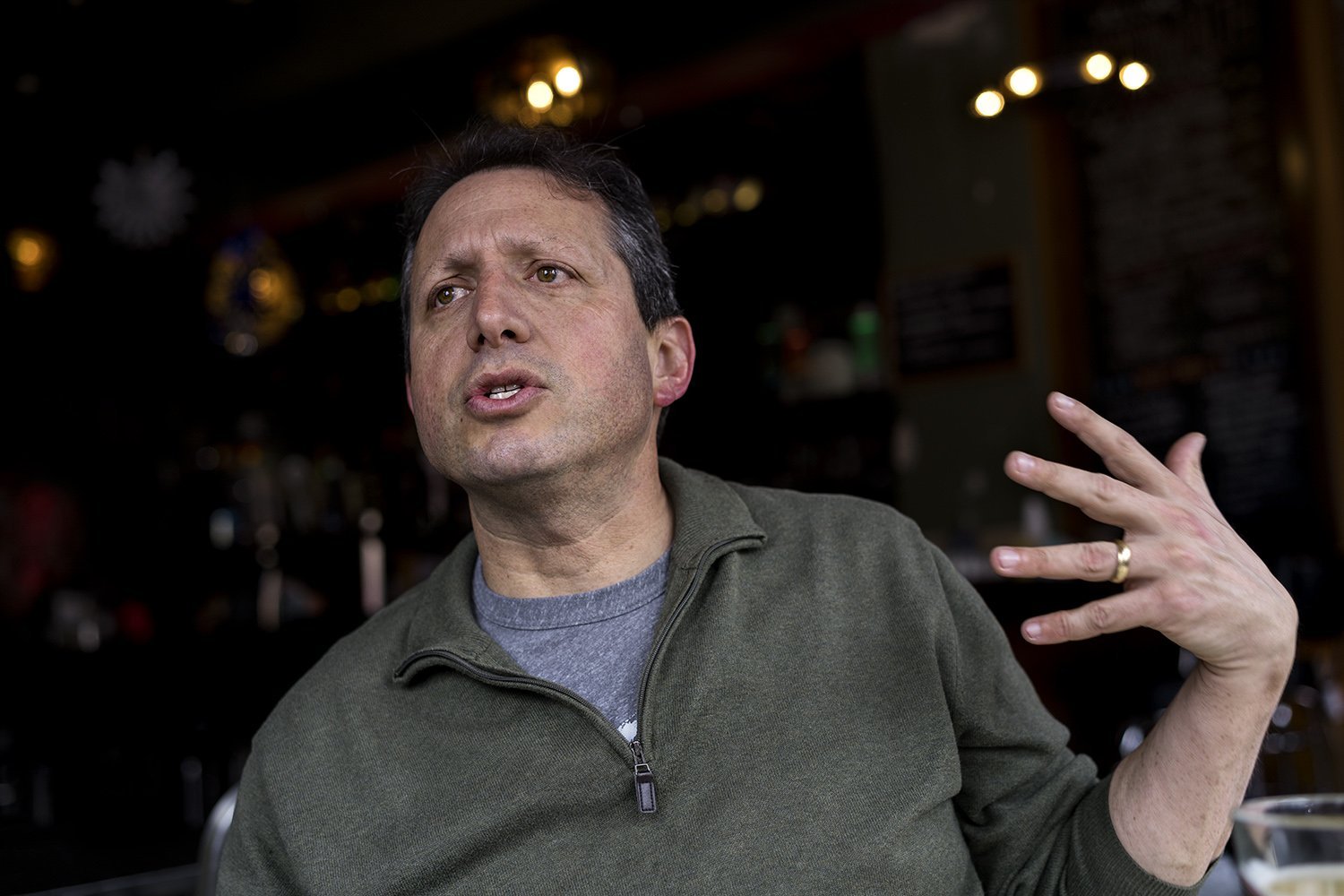
KCP: Moving on, you’ve recently registered a committee to explore running for the city comptroller in 2021. Why do you think you’d be good fit for comptroller?
BL: First let me say 2021 is a long time away to declare I’m running. I will say I love serving the city. I have really enjoyed working in the council with community groups and activists and neighbors and safe street advocates and labor unions, freelancers and public school parents, and try to make change both on the ground and through laws, and I’d like to keep doing that. I lover serving the city and would love to keep serving the city.
KCP: So what do you think is the job of the comptroller?
BL: The comptroller’s office is about taking the long-term view on the city and the democratic promises we make to each other and I find that really exciting.
KCP: How do you think current Comptroller Scott Stringer is doing so far?
BL: I think Scott is doing a good job. There a bunch of things he’s done I like. Eliminating placement agents from the pension fund management he gets high marks for, divesting private prisons of coal and fossils. He takes a good responsible look at the budget and raises up critical issues about the budget cushion and critical savings.
KCP: What do you think about the de Blasio Administration’s Thrive NYC mental health initiative? There have been media reports of large mismanagement of its’ enormous budget.
LANDER: I have not personally taken a deep look at Thrive NYC. I read the Politico story. I thought it raises some really important questions. The comptroller hasn’t yet done an audit. When there is an audit I’d be really glad to read it. I think its important for the comptroller to look at all aspects of the city.
KCP: Some time ago our site mischaracterized the organization you co-founded #GetOrganizedBK as a fringe group. Since then it has grown into a progressive political powerhouse with a number of off shoot organizations which have helped win elections. Tell me a little about the organization.
LANDER: Well, it’s not a political club. It’s a movement. It was created through a network of people who were traumatized by the Trump election and moved into action through a lot of different spaces and working groups to confront the injustice and bigotry and corruption of the Trump regime. So the things it’s mobilized people to do have not been electoral like the rally we organized after the Charlottesville where we had thousands of people in Grand Army Plaza. The huge participation in the women’s march and rallies around family separation and the travel ban at JFK, the biggest kind of fundraising efforts for immigrants to have application fees for DACA, the warriors for reproductive rights, who worked to get the Reproductive Rights Act passed, the Brooklyn voters alliance.
So it’s not the same as a political club, not formed that way. In a couple of [electorial] races i think it was a good vehicle for helping channel some of the energy that grew out of the Trump resistance work into flipping the House and flipping the New York State Senate.
KCP: You come from a non-profit background. Do you think there’s a place for capitalism and if so what and how should it be regulated.
BL: I mean we’re sitting in a bar right now. Commonwealth. Rakish [sp] is the owner. He invested the capital to create this bar. I’m not proposing that the city take over the operations of the bars. We have a strong network of small business, medium size businesses and large businesses That’s the nature of the city we have.
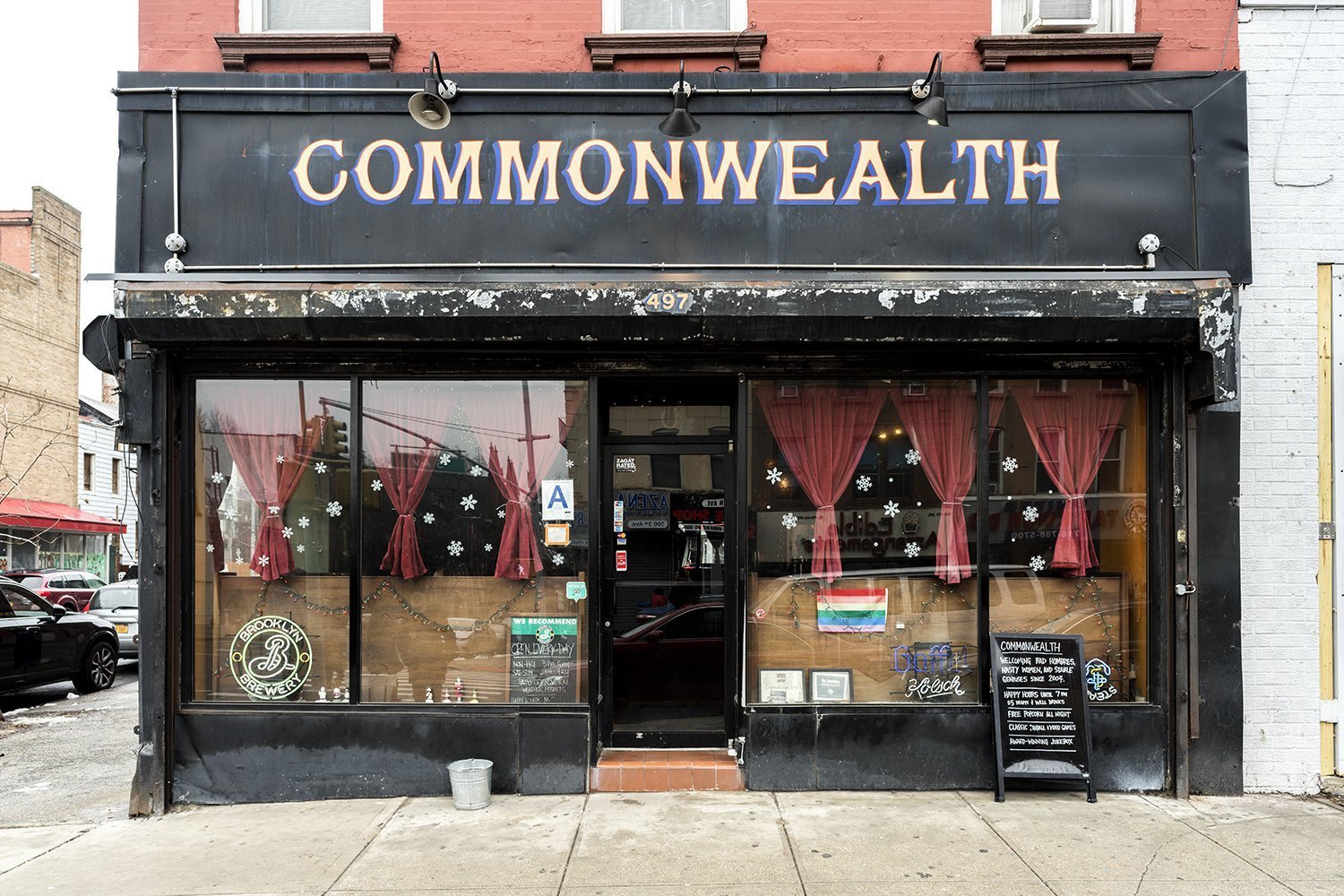
KCP: But do you think New York City is currently conducive to businesses wanting to continue to come here?
BL: Yes. Why else did Amazon want to come? Why is Amazon actually growing here. Why is Google growing here? We want a growing city. The challenges of making that growth work from a transit point of view, from a housing affordability point of view, from an equality point of view, from a climate change and sustainable point of view are significant. Those are the challenges that our city is facing.
The challenges our city is facing is how to make growth work and what I’m convinced of is if we keep investing in the basics, if our infrastructure is strong, if it stays in a place where schools are good and people want to live because of the cultural, intellectual and educational and art seems are strong it will continue to be a place where people will want to come and do business.
KCP: Last thing. The presidential race. Are you interested in it? Are you a Bernie [Sanders] guy?
BL: I’m definitely interested. I had the opportunity to sit down recently with a relatively small group of people with Bernie, and with a very small group of people to sit down with Elizabeth Warren. I found both of them very compelling. I certainly identify with the progressive wing of the party and they are both good exemplars of that, but there other candidates that I think might be very compelling presidential candidates like Kampala Harris. I’ve not yet made a decision.
KCP: Do you think the far left progressives can win the White House or do you think it will take more of a center left kind of person?
I think the policies that Bernie and AOC are championing – universal health care, the Green New Deal, free public college. The polling shows pretty clearly that a strong majority of American people support every one of those policies. So I think those policies are extremely popular.
Who is the most compelling candidate? Who can do the best to beat Trump and win the White House, I think that’s why we have election campaigns, and that is often less about policies, but about who people support.


